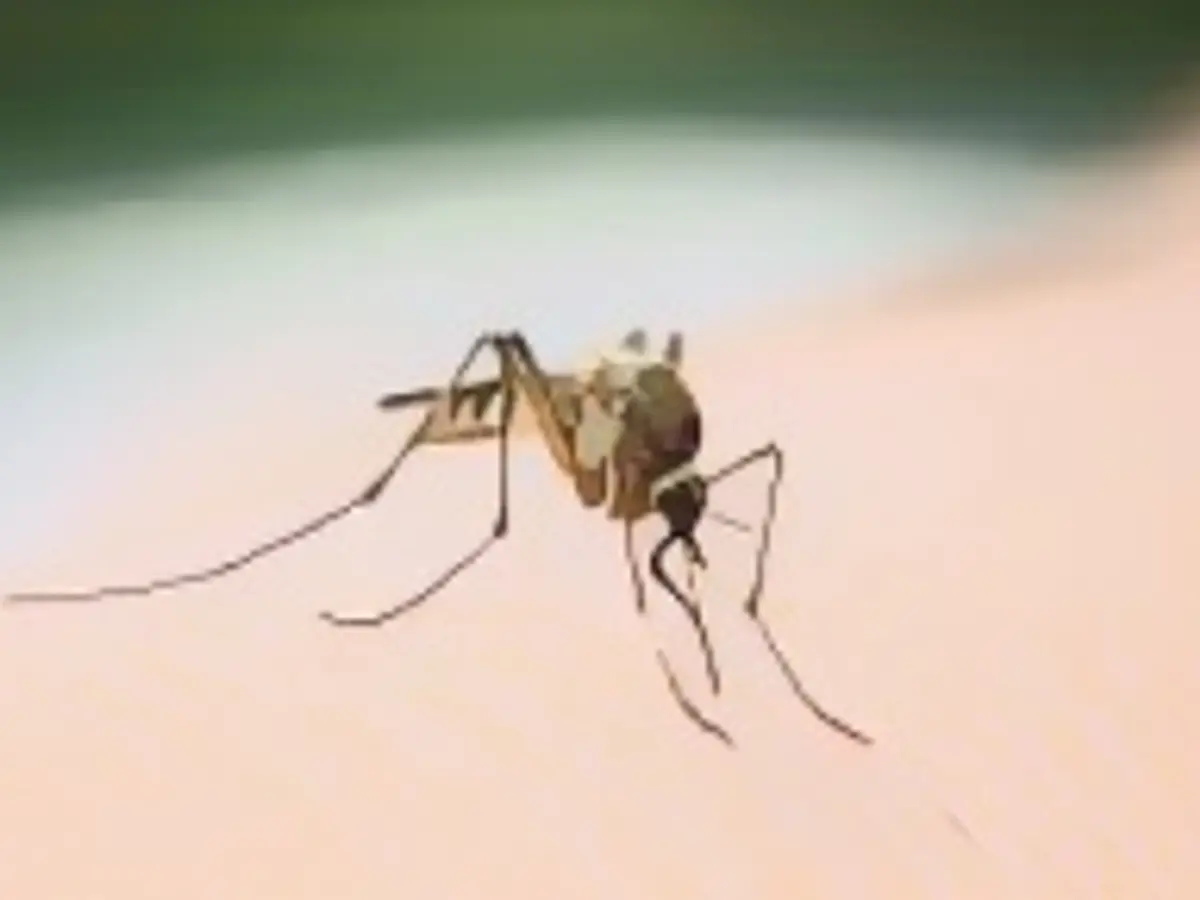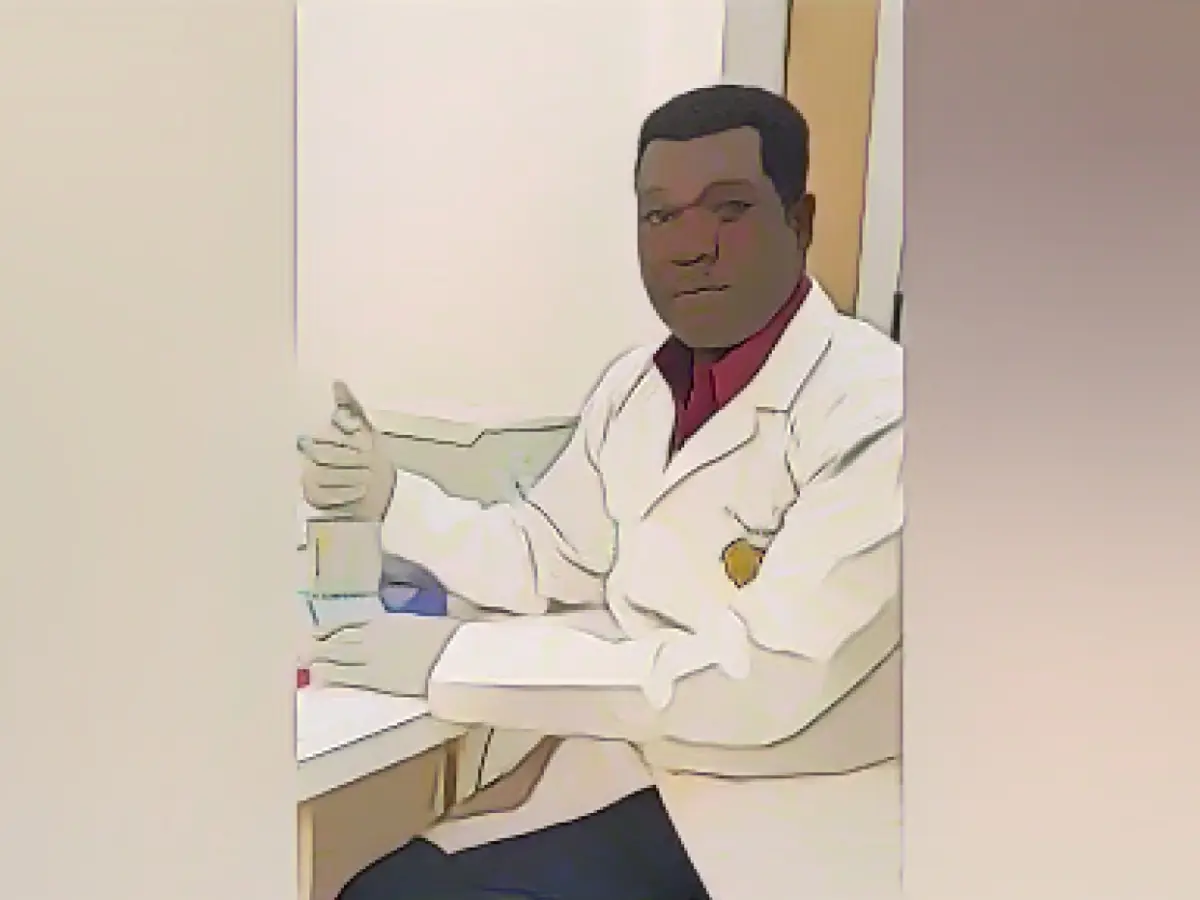Eradicating Malaria Through Genetic Editing of Mosquitoes
A groundbreaking innovation developed by Dr. Diabate, leader of medical entomology and parasitology at the Institute for Health Sciences in Burkina Faso, could potentially eliminate malaria-carrying mosquitoes through genetic modification.
Dr. Diabate, born in Burkina Faso and the recipient of this year's Falling Walls Prize for Science and Innovation Management, was recognized for his research on genetic solutions for malaria. Falling Walls Foundation, an organization dedicated to fostering groundbreaking thinking, hailed his work as holding "hope for the fight against malaria."
In September, Dr. Diabate was the sole African recipient of the worldwide award, praised for "some of the world's most advanced research on genetic solutions for malaria." He was honored by the Falling Walls Foundation, an organization dedicated to promoting innovative thought.
Malaria is the leading cause of death in Dr. Diabate's home country, which has a population of 22 million. Children are particularly vulnerable, as are 80% of the victims who die annually from the disease. According to the World Health Organization, almost 19,000 people died in Burkina Faso alone in 2021.
The African region, known for its high malaria burden, accounts for the largest global malaria burden. Traditional malaria control measures, including the use of insecticide-treated mosquito nets, have contributed to reducing malaria transmission and deaths. However, the World Health Organization reported in April that the number of malaria deaths remains unacceptably high and has increased since 2015, with rising infection rates and costs contributing to the situation. Additionally, biologic threats can cause insecticide resistance and Vektor-mücken to develop immunity to insecticides.
Recent World Health Organization data indicate that approximately 619,000 people died of malaria worldwide in 2021, with 96% of those fatalities occurring in Africa, according to the organization.
Dr. Diabate told CNN that innovative tools are the only way to defeat malaria, as traditional methods such as insecticide-treated mosquito nets have become less effective against resistant mosquitoes.
"While mosquito nets work well, mosquito strains that transmit malaria have developed widespread resistance to insecticides," he said. "This makes it very difficult to combat malaria with traditional methods. That's why it's extremely important to innovate and develop new methods that complement existing ones. Otherwise, we won't be able to defeat malaria."
Game-changing Technology
Dr. Diabate is optimistic that his Gene-Drive Technology Malaria Containment Tool could serve as a "game-changer" after its introduction.
Malaria is transmitted through female Anopheles mosquitoes, which bite humans, making them the primary vectors of the disease. Males do not bite humans and cannot transmit the disease.
Using Gene Drives, genetically modified female mosquitoes can be prevented from producing offspring, which is achieved by releasing genetically engineered, sterile male mosquitoes into the environment. This can help reduce the number of female mosquitoes and thus halt the malaria transmission cycle.
Dr. Diabate explained that, once released, genetically manipulated mosquitoes spread throughout the mosquito population, immediately reducing malaria transmission. Gene Drives represent a sustainable and cost-effective approach to malaria control.
"Genetically modified mosquitoes do the work for you," he said. "Unlike humans who travel to distribute aid, genetically engineered mosquitoes solve the problem locally. Their advantage is that they can be deployed effectively in remote and hard-to-reach areas of Africa."
Dr. Diabate stated that it may take several years before the Gene-Drive Technology is introduced in Africa.
Target Malaria, the research consortium led by Dr. Diabate, conducted the first phase of the project in 2019, releasing genetically modified mosquitoes in the village of Bana in western Burkina Faso. According to Target Malaria, over 14,000 unfruitful male mosquitoes were released during the controlled release.
"The controlled release was not intended to influence malaria transmission, but it was the first step in collecting data, building knowledge, and developing local expertise," Target Malaria explained in a blog post. "This research provides valuable insights that we can use in our future research."
There are other similar projects targeting mosquito DNA.
In 2013, the American biotechnology company Oxitec developed genetically modified mosquitoes that transmit lethal genes to female Aedes aegypti mosquitoes, which transmit dengue fever, yellow fever, and Zika virus. The offspring of genetically modified female mosquitoes die in the larval stage.
Additionally, the International Atomic Energy Agency (IAEA) introduced a gamma radiation-based technology in Latin America and the Caribbean to sterilize male mosquitoes with the goal of reducing the reproduction of female mosquitoes that transmit Zika virus.
Dr. Diabate's study appears to be one of the first to utilize genetic editing to target male mosquitoes' eradication.
Concerns About Environmental Impact
Health authorities outside of Burkina Faso have welcomed Dr. Diabate's Gene-Drive Technology, but further questions remain about its potential environmental impact upon its full deployment.
Lumbani Munthali, project manager for Malawi's National Malaria Control Program, told CNN that while the Gene-Drive Technology is "a fantastic innovation at the right time," its environmental impacts are still unclear.
"With the Gene-Drive Technology, we're talking about modifying genes, so we don't know what new vector we'll end up with, and what that means for the environment or ecology," he said. "That's something that researchers have to investigate."
Germany-based advocacy group Save Our Seeds (SOS) firmly opposes the Gene-Drive Technology, citing unpredictable impacts on ecosystems.
"Every living creature, even one that might be harmful or dangerous for humans, plays an important role in its ecosystem. Therefore, the extermination or manipulation of an organism will have consequences for the entire ecosystem," the group states on its website. "Every extermination of a species affects the balance of nature. Malaria-transmitting mosquitoes are important food sources for many animals, including birds and dragonflies."
According to SOS, the use of Biopestizides to eradicate mosquitoes in the Camargue Nature Reserve in southern France led to Vogelschäden [bird damages] and a decrease in arthropod and dragonfly diversity.
Dr. Diabate told CNN that "specific concerns" related to the Gene-Drive Technology would be addressed during the project development process.
CNN reached out to the Africa Centers for Disease Control and Prevention for comment on the safety of the Gene-Drive Technology.
Malaria has significantly impacted Dr. Diabate's personal life.
"Malaria has affected every aspect of my life, from my childhood near-death experience with the disease, to caring for my loved ones when they fell ill," he said. "I decided to devote my life to fighting diseases that originate in Africa and shape the future of millions of African lives."

Sources:
Enrichment Data:
Genetic editing of mosquito DNA has the potential to combat malaria in Africa by addressing insecticide resistance and potentially reducing mosquito populations. However, the effectiveness and practicality of these methods depend on addressing the ethical and practical considerations involved in their deployment.
- Gene Drive Systems: Researchers have developed gene drive systems that can correct insecticide resistance in mosquitoes by converting mutant alleles to the wild type or by preventing the reproduction of mutation-carrying chromosomes. For example, a fruit fly model demonstrated an 80% population conversion rate in eight generations.
- Allele Drive Efficiency: An allele drive system has been shown to increase the presence of the wild type allele by directly converting the mutant amino acid to the wild type or by preventing the successful passage of mutation-carrying chromosomes.
- Potential for Malaria Control: While the primary focus of these gene drive systems has been on insecticide resistance, there is potential for adapting these technologies to target malaria vectors directly.
- Ethical and Practical Considerations: The deployment of genetically modified mosquitoes raises significant ethical concerns, including safety, community engagement, and long-term effects. However, these technologies could offer substantial benefits in controlling vector-borne diseases if implemented responsibly and with proper community involvement.
- Epigenetic Regulation in Malaria Parasites: Another approach to combating malaria involves disrupting the epigenetic regulation of the parasite Plasmodium falciparum. A small molecule inhibitor targeting a protein essential for regulating gene expression in the parasite could block the parasite's life cycle progression and transmission, offering a new therapeutic strategy.








